Why one patient feared hospital's nurses were being 'set up to fail’
- Published
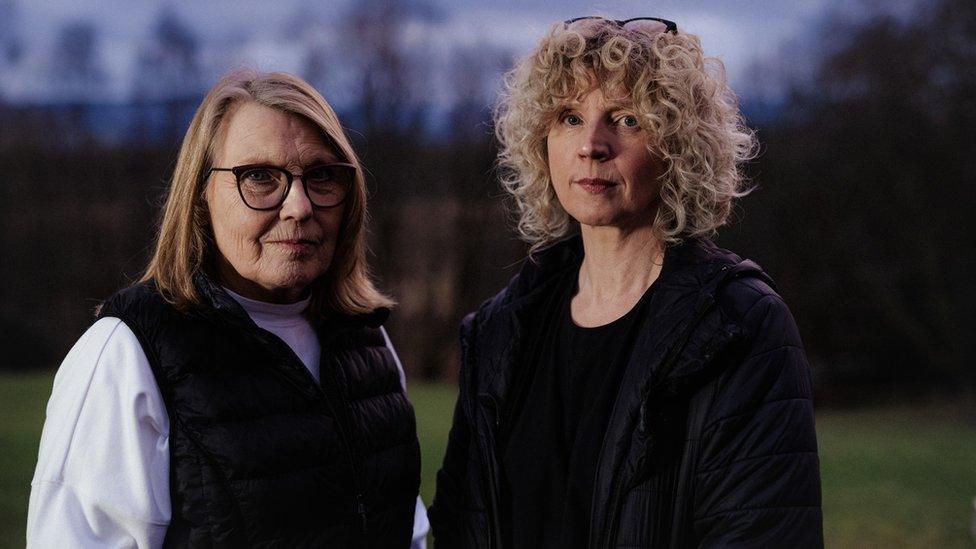
Jim Trodden's sister Bernie, left, and his daughter Rosie say they want to speak up for under-pressure staff
Jim Trodden was taken to Forth Valley Royal Hospital in Larbert with a torn artery last June. He died there five months later.
Members of the 68-year-old's large extended family were with him every day. Jim, who was a leading oil industry safety expert, told them about the problems he could see around him.
The family took notes on the pressures facing medics. Overcrowding, staff shortages and a relentless demand were just some of the observations.
And they were not the only ones who noticed.
The Trodden family's concerns mirrored those of NHS inspectors who visited Jim's ward and raised a string of patient safety concerns at the flagship hospital.
NHS Forth Valley was placed under special measures in November amid concerns about its leadership, governance and culture. The health board said it had been making improvements, pointing out that many of the issues in the last year stemmed from "unprecedented levels of demand".
But Jim's daughter Rosie said her family wanted to share her father's words "to try and improve a situation which is not good".
Speaking in a BBC Disclosure documentary about Scotland's NHS, she explained: "We were allowed to stay a lot longer than regular visiting hours.
"The biggest thing we saw was how much effort goes into providing excellent care, but how much of that comes at a cost personally to the team that deliver that care?
"He did say the staff and nurses are being set up to fail."
Rosie said her father meant there were times when a staff member had to prioritise one patient while buzzers were going off.
"However, something else might be going on down there... And if that doesn't end well, where is the blame?" she asked.
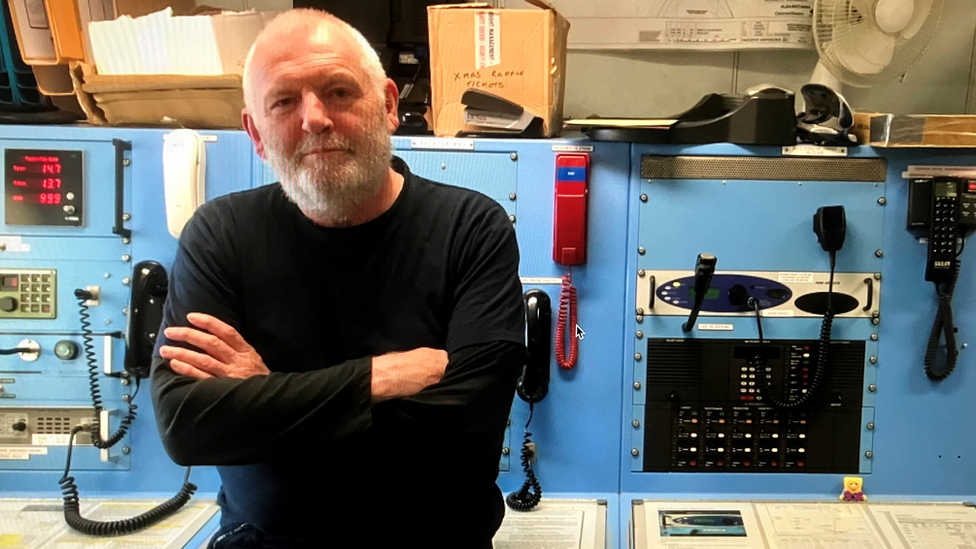
Jim Trodden was an internationally acclaimed health and safety expert and had recently retired from his job with Chevron
Another of Jim's concerns was that the hospital was putting the "physical and emotional wellbeing of the care team and patients at risk".
The family's notes said: "They should ask the care team how to fix this. Give them a voice - they are the experts."
The Healthcare Improvement Scotland (HIS) inspection report in September found the hospital was under pressure from increased patient numbers, delayed discharges and high levels of staff absence.
It noted that "at times staff were tearful and appeared worried about not being able to provide appropriate safe care and dignity for patients due to overcrowding and the use of additional contingency beds".
HIS had previously raised "privacy and dignity" concerns about adding a fifth bed to a four-bedded bay and Jim was in these extra beds on occasion.
Bernie, a former nurse, said it was "hard to watch when Jim was that fifth person".
She said: "He had no facilities by his bed, so no oxygen or anything that you would if you had your own space.
"I thought he might have died he was so frail, but I knew he would be better out of the ward.
"So I took him down to the coffee shop. He was desperate. His mood definitely went down while he was in the fifth bed."
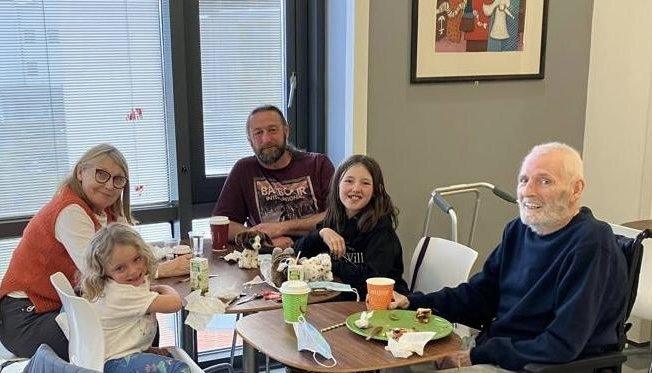
Jim with some of his family visiting him in hospital
Bernie said the care for her brother was "immense" both medically and on a human level, with nurses bringing in blueberries from home for Jim to eat.
She added: "Jim said they were the best of humanity working under intolerable pressure.
"The problem was the level of staffing wasn't enough to meet the needs of the patients that were there.
"One night there was a lot of buzzers going off and Jim needed assistance.
"The nurse came and said I know you need me, I know, I'll be here, I just have to go somewhere else first.
"She was almost crying, it's like you don't know where to go, what way to turn, because she's so many things to do."
Karren Morrison, a full-time Unison official at NHS Forth Valley, said the Trodden family's observations from the hospital chimed with what frontline staff had told her.
She said: "People tell me that they feel sick to come into work, that they sit in their cars working their way up to it - it's not an unusual occurrence for people to be in tears on a day-to-day basis.
"These are people who in general are copers but the demands being made on them are overwhelming."
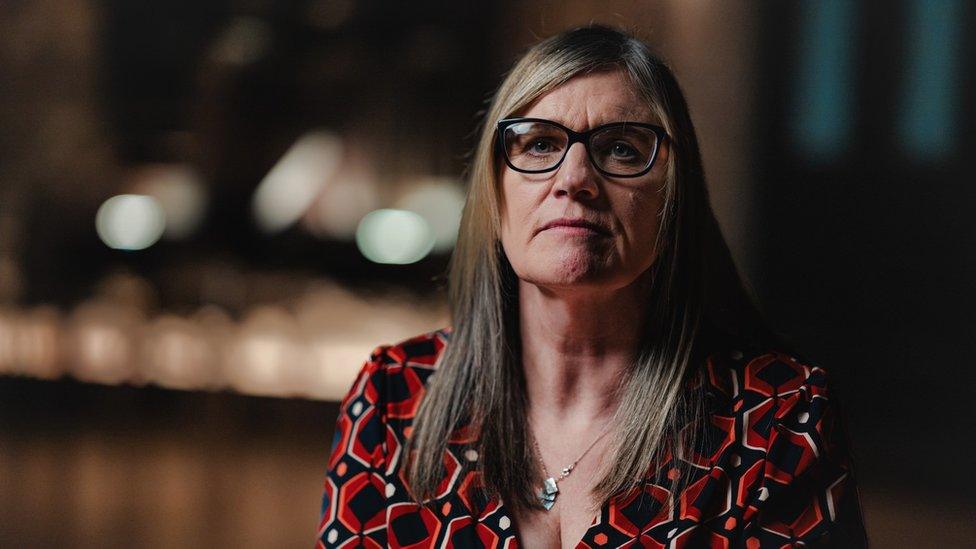
Karren Morrison, a full-time Unison official at NHS Forth Valley, hopes the board being put into special measures will bring about meaningful change for staff
In December last year a nurse at Forth Valley Royal Hospital was left to look after 37 patients on her own for a short period and, although an extreme example, Mrs Morrison said understaffing drives many of the hospital's problems.
She added: "We have the most dedicated, hard-working, caring staff imaginable. The NHS is only really running because of those staff.
"But what they can't bear is to watch a patient die and not feel that they've been able to provide a decent high-quality care. That's unbearable for staff. It's not what they're doing the job for."
Prof Frances Dodd, NHS Forth Valley's executive nurse director, said the board had faced "unprecedented levels of demand" in the last year and had to add more temporary beds as a result.
She said: "We recognise that the use of these additional contingency beds is not ideal and good progress has been made to close a significant number over the last few months.
"There has also been significant investment in additional clinical staffing and new procedures have been introduced to quickly identify and respond to any staffing or safety concerns.
"We recognise that there is still more to do and are committed to making further improvements to support local staff who continue to deliver high standards of care and treatment in very challenging circumstances."
Disclosure: Is the NHS There For Me?, is available on BBC iPlayer
Related topics
- Published5 December 2022
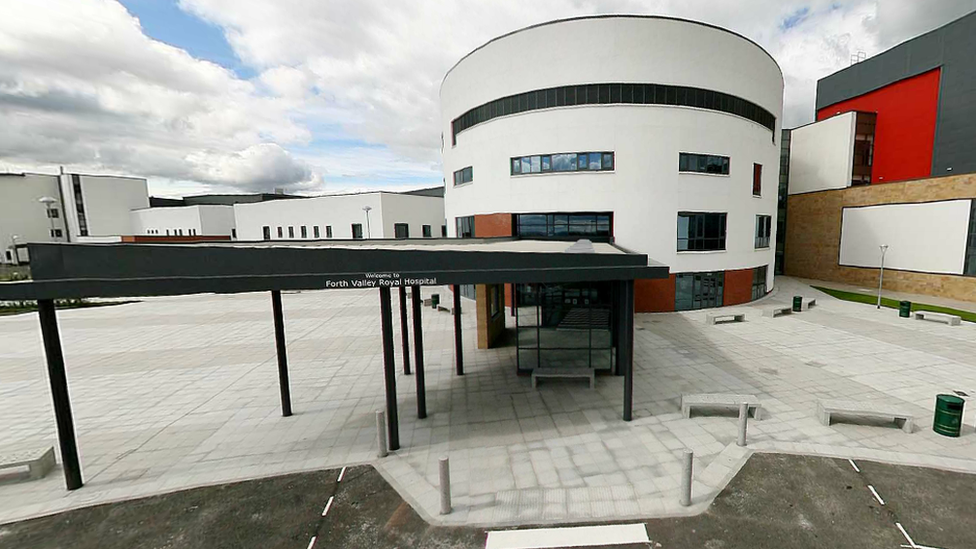
- Published10 November 2022
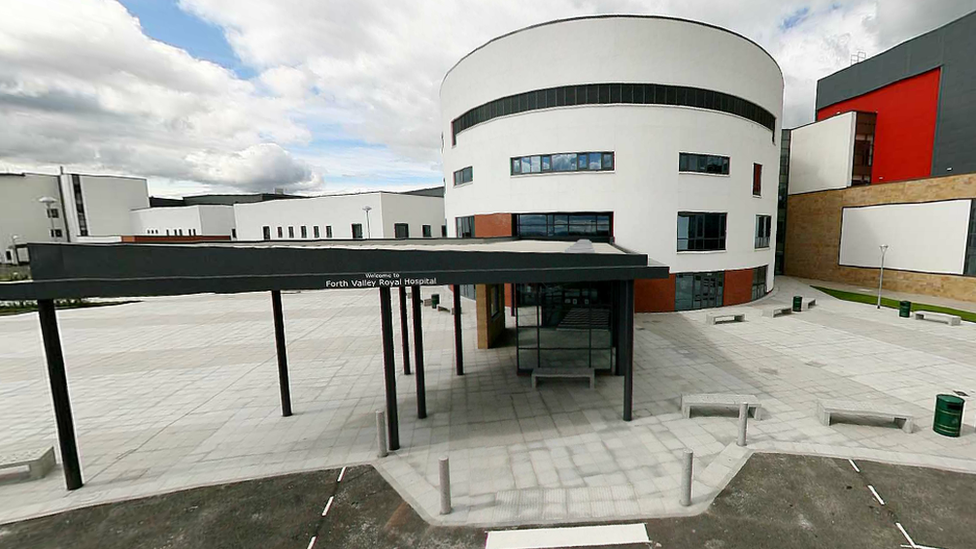
- Published23 November 2022
